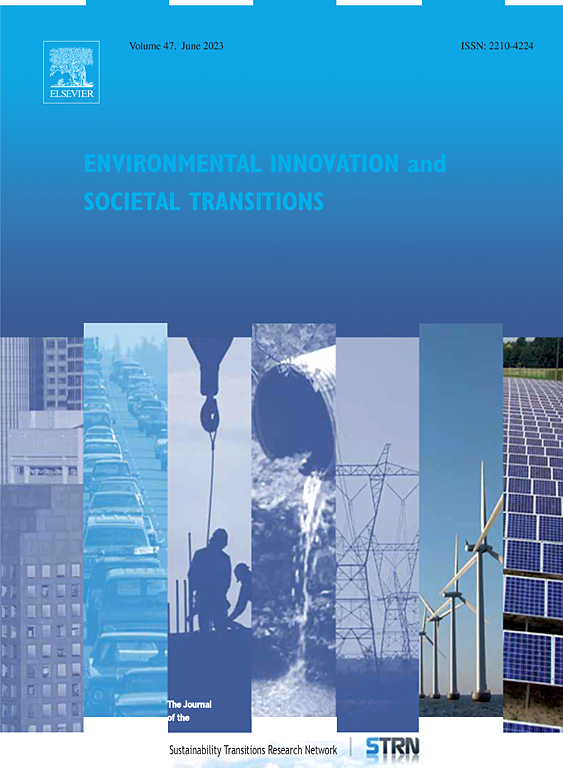成功的城市社区垃圾管理之路:来自中国26个实验的启示
IF 6.1
2区 经济学
Q1 ENVIRONMENTAL SCIENCES
Environmental Innovation and Societal Transitions
Pub Date : 2025-07-22
DOI:10.1016/j.eist.2025.101032
引用次数: 0
摘要
了解影响创新社区废物管理实验结果的因素对于改善城市废物管理至关重要。然而,关于什么是关键因素以及这些因素的不同组合和相互作用如何影响结果的证据有限。本研究采用混合方法分析了中国深圳26个社区垃圾管理实验。通过分析从访谈、调查和焦点小组中获得的数据,我们确定了决定这些实验成功的19个关键因素。通过模糊集定性比较分析(fsQCA),我们确定了三个成功的因果路径:(1)由专门社区支持的忠诚参与者;(2)有当地政府支持的坚定参与者;(3)由负责任的地方政府支持的强有力的基层领导。这表明,社会、组织和行为层面的整合对于解决复杂的废物管理挑战至关重要。研究结果还表明,决策者和实践者可能会根据当地的情况选择不同的成功途径。本文章由计算机程序翻译,如有差异,请以英文原文为准。
Pathways towards successful urban community waste management: Insight from 26 experiments in China
Understanding factors influencing the outcomes of innovative community waste management experiments is crucial for improving urban waste management. Yet, there is limited evidence on what are the critical factors and how different combination, and interaction of these factors influence outcomes. This study analyses 26 community waste management experiments in Shenzhen, China, using a mixed-method approach. Through analyzing data obtained from interviews, surveys, and focus groups, we identify 19 key factors determining the success of these experiments. Through fuzzy-set qualitative comparative analysis (fsQCA), we identified three successful causal pathways: (1) committed participants supported by dedicated communities; (2) committed participants with local government backing; and (3) strong grassroots leadership supported by responsible local government. This indicates that an integration of social, organizational, and behavioral dimensions is crucial to tackle complex waste management challenges. The results also imply that policymakers and practitioners may chose alternative approaches to success, depending on their local situation.
求助全文
通过发布文献求助,成功后即可免费获取论文全文。
去求助
来源期刊

Environmental Innovation and Societal Transitions
Energy-Renewable Energy, Sustainability and the Environment
CiteScore
13.60
自引率
19.40%
发文量
90
审稿时长
56 days
期刊介绍:
Environmental Innovation and Societal Transitions serves as a platform for reporting studies on innovations and socio-economic transitions aimed at fostering an environmentally sustainable economy, thereby addressing structural resource scarcity and environmental challenges, particularly those associated with fossil energy use and climate change. The journal focuses on various forms of innovation, including technological, organizational, economic, institutional, and political, as well as economy-wide and sectoral changes in areas such as energy, transport, agriculture, and water management. It endeavors to tackle complex questions concerning social, economic, behavioral-psychological, and political barriers and opportunities, along with their intricate interactions. With a multidisciplinary approach and methodological openness, the journal welcomes contributions from a wide array of disciplines within the social, environmental, and innovation sciences.
 求助内容:
求助内容: 应助结果提醒方式:
应助结果提醒方式:


